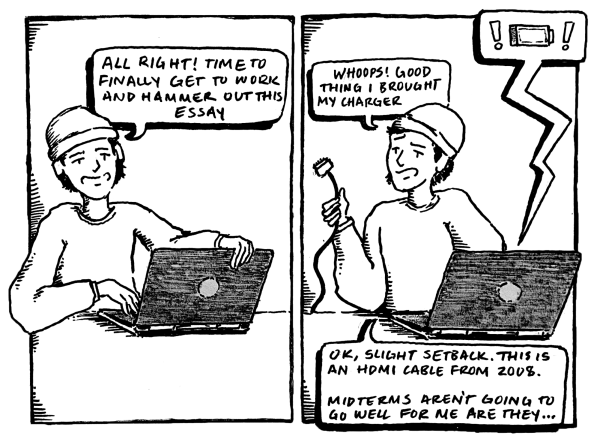Career Communities Represents Positive Change, But Funding Must Be Accessible
My experience with the Career Communities Program was very valuable. As a member of the Nonprofit and Public Sector Career Community, I learned so much about career preparedness, networking, and interviewing. It really showed me how strong Oberlin’s alumni network is — there are so many Obies doing amazing things all over the country who are eager to talk to current students about their futures.
Since I want to work in a competitive field, having specialized training to improve résumé and interviewing skills was indispensable. After multiple rounds of interviews with several organizations, I accepted an internship with The Brady Campaign to End Gun Violence, an interest group in Washington, D.C. That process taught me a lot about how to appreciate my own worth as a member of the workforce and convey my value to employers.
Career Communities, now in its first year, represents a step in the right direction for Oberlin’s career resources. An Oberlin education is a wonderful, enriching experience, but, as the Review has previously noted, we rank among the worst interviewees compared to graduates of our peer institutions (“Students Should Prioritize Career Prep,” Nov. 16, 2018). Career Communities opens doors by guaranteeing positions in summer internships, but doesn’t just hand them to students with no strings; through a one-module course, we did workshops, performed mock interviews, used online tools to connect with and interview alumni, and focused on general career readiness.
For graduating seniors, Career Communities is especially attractive, because it opens up paths in our chosen fields. Just by working in the field for one summer, we can meet so many people and connect with future employers. The program is also open to international students, giving them more flexibility in career options in the United States, as so many opportunities in the United States are only open to citizens or green card holders. Furthermore, the program provides funding, which means many students who would not otherwise be able to do unpaid internships can take advantage of this opportunity. However, when the funding deposits for our summer internships came in this week, many of us were alarmed.
I was appalled to see that the amount deposited in my account was over 20 percent less than the amount specified in the contract I had previously signed. Yes, the contract did state that the figure was pre-tax, but I have worked multiple jobs in multiple states and have never been taxed anywhere close to this rate. It was a shock. Had we been informed of the post-tax amount instead, all of us could have budgeted for the financial support we would actually be receiving. For many students, this deduction is, in fact, prohibitive.
It is true that recipients can choose not to have their taxes withheld from paychecks and receive the full pre-tax at the time of payment. That said, I believe the Career Communities program did not provide adequate information on the choices before us when we filled out our forms. Legally, Oberlin College cannot give tax advice. However, information is not advice. The Career Center cannot expect detailed tax literacy from 18-to-21-year-olds. It is unreasonable to expect students to be able to talk to their parents about tax issues, because their parents may not know the ins and outs of tax law — this is especially true of first- and second-generation families or non-English-speaking families.
Since the Career Communities is expanding next year and adding new sectors, I think it might be worth considering to either account for higher financial need, or to explore options to convert program funding into a grant or scholarship format. The program is so valuable and provides a really positive experience for Obies hoping to develop their professional skills. I hope that these are just bumps in the road typical of a pilot program, and that future students will have more clear information regarding the pre- and post-tax funding they will receive. It is critical to make sure the Career Communities program is accessible for all students.


